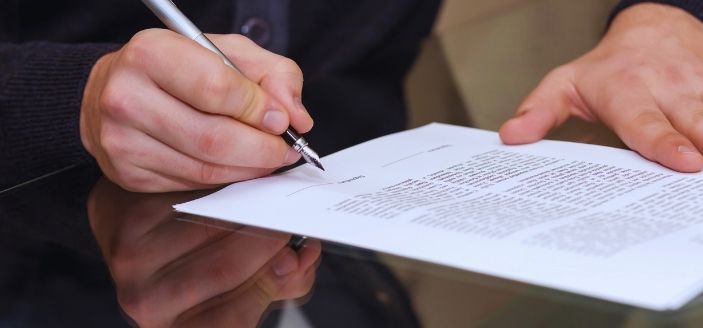01 Dec Certification of forged power of attorney

Certification of forged power of attorney
by George Coucounis
“Equivalent to participation in defrauding the property owner and taking away his property’’
The lack of adequate supervision and control of the certifying officers provides the possibility of defrauding the real estate owner, who may see his property lost illegally, usually by a relative who draws up a forged power of attorney, certifies his forged signature and using the power of attorney sells the property of the owner to an unsuspecting bona fide purchaser. The phenomenon is real if, with the assistance of a certifying officer, who does not require the presence of the person giving the power of attorney during the certification, a forged power of attorney document is certified, which is then used to sell the property. In this way, the property owner and the bona fide purchaser are defrauded, but the owner remains the victim. The sale of the property, although illegal, allows the bona fide purchaser to retain the property and the title deed and the only remedy available to the owner is to claim compensation from the person who acted wrongly against him and the certifying officer.
It is self–evident that the owner in such an event, although he did not want to sell his property, it changes hands and the owner may not be able to recover compensation since the person who defrauded him is imprisoned and may not have any assets to satisfy the owner’s claim. The certifying officer must be doubly careful and protect the owner, both by ascertaining the identity of the person whose signature is sought to be certified, and by not accepting to certify the signature of a person who does not appear before him and without signing the certification book.
The lack of adequate supervision by the competent Authority of the manner in which certifying officers operate and the relaxation of the law, together with the lack of regulation of the manner of certification, provides the possibility of defrauding a property owner and taking away his property. This fact affects the entire system regarding the property ownership in Cyprus and the state, Government and House of Representatives must regulate the issue and provide for severe penalties against any offender. It is not acceptable for a certifying officer to certify the signature of a person without his presence, not to ascertain his identity and not to require him to sign the certification book that the certifying officer must keep in chronological order. No certification shall be valid unless the above safeguards are strictly observed in order to eliminate fraud.
The above need emerges from the facts recorded in the judgment delivered by the Supreme Court in Civil Appeal 283/2014, dated 17.11.2022, wherein the property owner, through the administrator of her estate, was seeking Court orders to cancel as illegal the transfer of her property as the transaction was the product of forgery and seeking re-registration of the property in her name and other remedies. The Supreme Court in its judgement sights the result of the first instance judgement that, although the forgery of the power of attorney existed and was proven, the involvement of the buyers was not proven.
The owner’s main complaint on appeal was that the finding of the trial Court that the buyers did not know of the forgery of the power of attorney document and consequently did not know of the illegality of the sale contract and that it was not permissible to issue any judgement against them, was wrong since it was not justified in the light of the law and the facts of the case. The Supreme Court did not agree, holding that the trial Court correctly considered the element of the sale price of the property. Citing case law, it emphasized that it was not decided that any deviation in the sale price from the appraised value of a property must, without more, cast doubt on the bona fide contracting parties as to the validity and intentions of any purported proxy representative of the owner.
Nor did the Supreme Court accept the owner’s suggestion that the sale contract and the power of attorney were illegal and that they should necessarily lead the trial Court to a finding of universal invalidity of not only the transfer deed but also of the sale contract. Again, with reference to case law, the Supreme Court pointed out that unlike in the present case, there was participation of the parties in the conclusion of the illegal agreement, whereas in the present case the owner failed to substantiate such a claim.